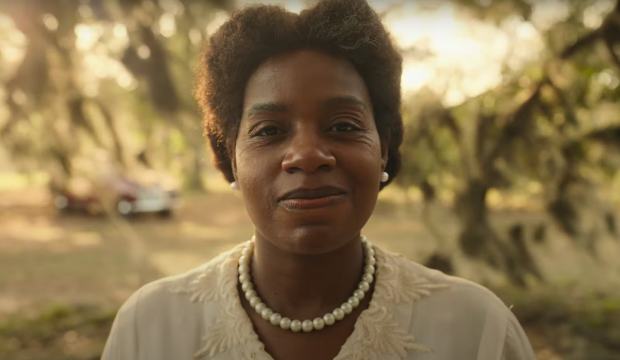A Remarkable Journey of Resilience and Sisterhood
Alice Walker’s iconic 1982 novel, “The Color Purple,” has been brought to life in various forms, but Blitz Bazawule’s latest film adaptation is a true masterpiece that captures the essence of the written word and the power of musical performance. “The Color Purple” is not just a movie; it’s an emotional journey that resonates deeply with its audience.
The film follows the life of Celie, portrayed with incredible depth by both Phylicia Pearl Mpasi in her youth and Fantasia Barrino in adulthood. Celie’s story is one of hardship, abuse, and resilience. From a young age, she and her sister Nettie (played by Halle Bailey) find solace in each other’s company, but an abusive father overshadows their lives. Celie’s life takes a grim turn when she is forced into a loveless marriage with Mister (Colman Domingo). As the years pass, Celie endures unimaginable hardships, with only the distant hope of reuniting with her sister and children to keep her going.
The performances in “The Color Purple” are nothing short of extraordinary. Mpasi and Barrino, both making their film debuts, deliver performances that are raw, powerful, and deeply moving. Mpasi’s portrayal of Celie is particularly captivating, with her expressive eyes and subtle gestures conveying a world of emotion. The chemistry between her and Bailey is palpable, making Nettie’s absence on-screen feel just as impactful.
Barrino, as the elder Celie, gives a stellar performance that seamlessly balances childhood innocence with the weight of a lifetime of suffering. She portrays a woman who has been stunted by the oppressive men in her life, and it’s a testament to Barrino’s talent that she captures Celie’s complexity so convincingly.
Danielle Brooks, in the role of Sofia, steals the show with her powerhouse performance. Her charismatic presence and emotional range are a joy to watch. Sofia refuses to be ignored or disrespected, and Brooks’s performance demands the same level of attention and respect.
However, Taraji P. Henson as Shug Avery is the one minor misstep in the film. While her character is meant to bring moments of levity, Henson’s performance sometimes feels overly theatrical and out of sync with the rest of the cast’s authenticity. Shug is a character who demands unshakeable charisma and depth, and Henson falls slightly short in delivering that.
“The Color Purple” covers a vast span of time in Celie’s life, and while the film is mostly well-paced, there are moments where it meanders, particularly during Shug’s spotlight. Some musical numbers also feel less integral to the story. However, the film’s triumphant musical sequences are a sight to behold, filled with emotion and expertly choreographed.
The American South is beautifully portrayed, becoming a character in itself, and enhancing the impact of the musical numbers. It’s a visual and auditory feast that adds depth to the storytelling.
“The Color Purple” is a poignant and emotional portrait of a Black woman’s life, marked by adversity and the unbreakable bond of Black sisterhood. It’s a testament to resilience and perseverance, faithfully capturing the essence of a beloved story. This adaptation is a triumph, and it’s a must-see for anyone who appreciates powerful storytelling and exceptional performances.
“The Color Purple” is a cinematic masterpiece that will touch your heart and leave you in awe. It’s a celebration of sisterhood, love, and the enduring human spirit.
Don’t miss the opportunity to experience this remarkable film in theaters nationwide on December 25th.

